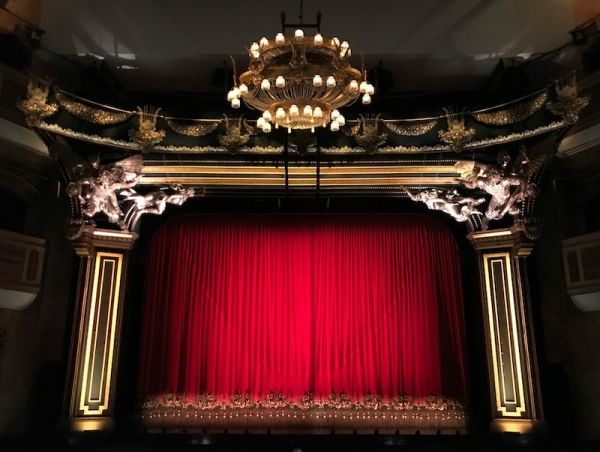The drama of salvation

As you read through the Old Testament law, and the directions for Israel’s worship in particular, one thing certainly grabs you. There is a great deal of drama going on.
There are costumes, with the priestly garments covered in items with rich symbolism. There is washing before and after getting into these garments, and the staging of the tabernacle itself with its lavish and meaningful construction. Then comes the sacrifices with all senses being engaged: the smell of incense being burned, the touch of sacrifices being waved before the altar, the sight of the sacrifices and their blood being sprinkled, the sound of the fire and the prayers, and the taste for the priests as they eat their portion of the sacrifice in the sight of all the people.
This all looks like a piece of immersive theatre, and in some ways it is. The people are supposed to be immersed in the experience as they offer sacrifices and worship to the God who is with them. But for all the drama, it is more than that. It is dealing rightly with a holy God who lives alongside a sinful people. The drama is not for entertainment, but to teach and illustrate what is happening.
Perhaps one of the strongest examples of this is on the day of atonement. On that day, the people offer two goats to the Lord. One is sacrificed in the usual manner, but the other acts as a scapegoat. The priest lays his hands on the head of the animal and confesses the sins of the people. This goat is then led outside of the camp and released into the wilderness.
It is a wonderful piece of drama with a very important message. Through the sacrifices and worship that the people offer, their sins are dealt with. All of their guilt and wrongdoing is removed from them, sent away from their presence never to be seen again. It is not only something the people are commanded to do, but a living picture of what God is doing for them, to fire their imagination.
As Christians today, we don’t have the same symbolism of the tabernacle or altar. But for us the drama of salvation happens during the Easter events. Through the cross and resurrection we see the drama of our sin being dealt with in Jesus Christ. It is not immersive in the same sense, since we are not there as Jesus hung on the cross. But it can - and should - still fire our imagination and immerse us in the drama. We can think, reflect, wonder and imagine ourselves into the Easter narrative, and walk through the events of our salvation. Like the Old Testament people, this is not just a reminder, but a reassurance that we are indeed right with God and made clean. The cross and resurrection are not just facts to assent to, but living truths to delight in and be immersed in each and every day.
Photo by Gwen King on Unsplash
Dan Wells, 01/05/2024